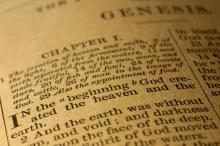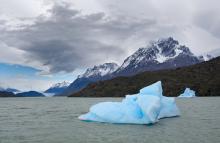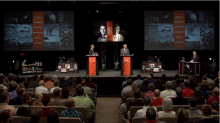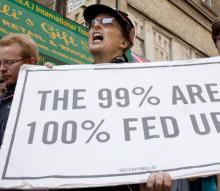environmentalism

What does it look like for churches to act faithfully in the current tumultuous political crisis? Prophetic witness and speaking up for justice matters; acting faithfully goes hand in hand with speaking faithfully. Whatever policy priorities churches focus on, they should always look to go deeper into solidarity with those in need in their communities — especially marginalized people who are in danger due to unjust government actions.
Solidarity isn’t affection. Solidarity is, instead, a recognition that our destinies are intertwined because of our common humanity. As Martin Luther King, Jr. wrote in his 1963 “Letter from Birmingham Jail,” “We are caught in an inescapable network of mutuality, tied in a single garment of destiny.”

When most people consider the holy month of Ramadan, the 30 days of fasting and reflection for Muslims, they may not picture a millennial in a hijab connecting the Qur’an with environmental justice through Instagram hashtags like #greenramadan and #ecomuslim. But Saarah Yasmin Latif is on a mission to help people of all religious traditions connect their faith with individual and collective acts to sustain the earth.

“THIS WORLD IS not my home / I’m just passing through / My treasures are laid up / Somewhere beyond the blue.” This old gospel song summed up my approach to the physical world as a young Christian.
Coming to faith in the Bible Belt of the United States, I confused admonitions to “not belong to the world” (John 15:19) and “walk not according to the flesh” (Romans 8:4) with a blanket statement to shun physicality. Later, when I discovered the contem-platives and monastics, their stories of fasting and asceticism seemed to reinforce the idea that detachment from the material world is the most holy path.
But in a time when some Bible-thumping Christians respond to deforestation and species extinction with a shrug and say, “It’s all going to burn anyway,” I reject these interpretations. “The world” and “the flesh” that Jesus and Paul had in mind are not the earth and our bodies. They are, rather, human-made social hierarchies and oppressive, extractive economies. Do not belong to these. But do belong to the gooseberries, the crickets, the soil, and the gurgling creeks.

There are women in my life I choose to breathe with. With these women, I turn our breath into sounds, sounds into words, and raise them together in solidarity across the currents of justice. Together, we fight for the environment, we fight for rights, for black lives, for women's rights — and constantly strive for peace.

Why does caring about Jesus mean we should care for the earth? There are plenty of Old Testament passages about the lordship of God over all creation, but let’s limit ourselves, for the sake of evangelical argument, to Jesus. He cares about ecology because of his incarnation into creation, his miracles restoring creation, and his lordship over creation.

If you are a Christian, protecting the environment is part of your identity, not an ideological option, Pope Francis said Feb. 9.
“When we hear that people have meetings about how to preserve creation, we can say: ‘No, they are the greens!’” Francis said in his homily at morning Mass, using a common name for environmental activists.
“No, they are not the greens! This is the Christian!” he said.
“A Christian who does not protect creation, who does not let it grow, is a Christian who does not care about the work of God; that work that was born from the love of God for us,” Francis continued. “And this is the first response to the first creation: protect creation, make it grow.”
The pope — who took his name from St. Francis of Assisi, the patron saint of the environment — has made care for the environment a hallmark of his papacy since he was elected nearly two years ago.

Catholic environmental groups from around the world on Jan. 14 announced a new global network to battle climate change just as many Catholic conservatives are sharply criticizing Pope Francis’ campaign to put environmental protection high on the church’s agenda.
“We are certain that anthropogenic (human-made) climate change endangers God’s creation and us all, particularly the poor, whose voices have already spoken of the impacts of an altered climate,” the new Global Catholic Climate Movement says in its mission statement.
“Climate change is about our responsibility as God’s children and people of faith to care for human life, especially future generations, by caring for all of God’s wondrous creation,” the statement continues.
The GCCM said it intends to push for international treaties to battle global warming but said it is approaching the issue from a moral and biblical perspective and hopes to “encourage the conversion of hardened hearts.”
That could be a tall order in light of current arguments over climate change in U.S. politics and in the American church.

Director Darren Aronofsky says he is not religious, and that his Russell Crowe blockbuster movie “Noah” is the “least-biblical biblical film ever made.”
But the strong environmental message of his film — which makes Noah a hero as a God-inspired steward of the earth — firmly roots itself in Scripture, Aronofsky told an audience of religious environmentalists on Wednesday. Many of them hope the message of the movie, which has grossed more than $300 million since its release on March 28, spurs more people of faith to work against climate change.
In “Noah,” Aronofsky said, he hoped to capture the beauty of creation, and to dramatize God’s dramatic decision to destroy it because of human sin. Noah, he said, “is saving the animals. He is not looking for innocent [human] babies. It’s about saving the animals.”

When God coupled the earth with the breath of eternity, our souls and the soil were fused and our destinies perpetually intertwined. While many of us have been taught that human beings have dominion over the Earth, we have not understood that what we do to Mother Earth, we do to one another and to God.
Dominion theology has led to domination, abuse, and destruction of Mother Earth and human communities. Every time we strip the land of its diversity, we strip a layer of humanity from our collective souls. Soil is also a community of diverse beings — some visible to the naked eye, some microscopic. A diversity of beings distinguish fertile soil from lifeless dirt. When industrial agriculture or chemical spills make these beings homeless, our soil becomes dust and is gone with the wind. Regardless of their visibility to the human eye, maintaining the homes of microbes intact, is what keeps the land fertile for growing crops which feed human beings. Adding microbes to “the least of these” who deserve our protection is truly an act of self preservation.
Respect and protection is a recurring casualty of dominion theology in that dominated land requires dominated people to work it. Plantations required slaves, and agribusiness requires exploited immigrants. Generational shame was whipped into the minds of enslaved Africans as their backs were abused in cultivating the land. Over the course of 400 years, a healthy relationship with Mother Earth was one of those legacies lost, stolen, or strayed for many African Americans. Restoring a healthy relationship with the land is a vital prerequisite for our urban youth to turn their food deserts into an oasis of food sovereignty.

St. Bonaventure (d. 1274) once said, “Whoever is not enlightened by the splendor of created things is blind; whoever is not aroused by the sound of their voice is deaf; whoever does not praise God for all these creatures is mute; whoever after so much evidence does not recognize the Maker of all things, is an idiot.”[1]
If Bonaventure was right, then we’re all idiots.
The first time I travelled to Rome was an experience second to none. Never, in my young travels, had I ventured to a place so layered with history and significance around every corner that one literally couldn’t escape it. Even the Roman suburbs were historical. We were amped to see it all. Our approach was simple: we would incrementally make our way through the city over the course of 10 days with a plan that would make any explorer proud.
The sheer magnitude of historical and ecclesiastical sites to be seen in the city was overwhelming at best. Then it happened. I had a unique moment near the end of the trip. We’d been walking nonstop through museums, ruins, churches; we’d even heard the pope preach a sermon, when I started to lose my attention. Many travelers or art buffs will resonate with this — there came a point during our endless walk through Rome where I had seen so much beauty and splendor and history that I just started taking it all for granted. The last two days consisted of me walking around blindly and numbly, room-to-room, ruin-to-ruin, as though what I stood before was of little or no value.
I called it “beauty exhaustion.”

There was a moment during last week’s “debate” between Bill Nye the Science Guy and young-earth creationist Ken Ham that I think was more telling than any other.
During the Q&A session, Ham was asked what seemed to me to be a very simple question: “Hypothetically, if evidence existed that caused you to admit that the universe is older than 10,000 years and creation did not occur in six days, would you still believe in God, and the historical Jesus of Nazareth, and that Jesus was the son of God?”
What was most telling was not really what Ham said, as much as what he didn’t say, which was “Yes.”
In my mind, this question was a softball pitch. It couldn’t possibly be easier. And Ham was given two minutes to answer the thing? His response should have taken all of two seconds: “Yes.”

We in our era have accomplished something no other civilization would have considered possible — or desirable. We have taken human wastefulness and self-destruction to never-before-seen levels and we have distorted our scriptures to justify even celebrate — our own destruction.
Whether it is fracking (with its own legacy of toxic waste) the Keystone XL Pipeline (with its virtually guaranteed oil spills across prime farm land) accompanied by the largest population ever seen on the face of the earth — with its attendant garbage and sewage — we are seeing threats to our climate, food supply, economy, and quality of life on a level never seen before in human history.
Historically, theologies (and philosophy) have put a brake on human avarice, violence, and unbridled destruction of the environment.
Reflection and restraint, for millennia, have been the twin pillars of historic conservatism.
Not now.

If Congress passes immigration reform, much of the credit will be given to the broad and diverse voices that have lined up in support of fixing our nation’s broken immigration system. Both the labor and business community have been instrumental in moving legislation forward, while the evangelical community’s call to “welcome the stranger” has received significant attention by politicians and the media. The coalition of supporters continues to grow, as last week the Sierra Club, the oldest environmental organization in the country, announced its support for immigration reform.
Why would an environmental organization get involved with immigration reform? What could they possibly have at stake?
A lot.

Several days ago a document, the “GlobalMay Statement,” showed up in my email inbox. In the statement, it is explained that “this is an attempt by some inside the [occupy] movements to reconcile statements written and endorsed in the different assemblies around the world. The process of writing the statement was consensus based, open to all, and regularly announced on our international communications platforms, that are also open to all. It was a hard and long process, full of compromises. This statement is offered to people’s assemblies around the world for discussions, revisions and endorsements.”
One of the things which struck me was how strong the statement is on the climate and environmental crises. The first sentence of the first general point says that, “The economy must be put to the service of people’s welfare, and to support and serve the environment, not private profit.” Four of the ten bullet points under that first general point deal in some way with environmental issues.

As a Pro-Life Catholic Mother of three beautiful children, I was surprised by the joint statement released by The Cornwall Alliance about the Rev. Mitch Hescox and the Evangelical Environmental Network's mercury campaign. I was shocked when the Cornwall Alliance joint statement declared the definition of Pro-Life as merely an "opposition to a procedure that intentionally results in dead babies."
I am an ardent Pro-Life and Children's Environmental Health Advocate. In the Cornwall Alliance statement they note that "most environmental causes promoted as pro-life involve little threat to human life itself, and no intent to kill anyone." I have spent the 6.5 years researching environmental toxins and their impact on our born and unborn Children's health. The toxic environmental exposures, like mercury, are directly linked to many life ending, life threatening or life altering diseases in our children.

The legacy of Martin Luther King, Jr., and the reality of climate change are both victims of western culture’s remarkable capacity to accommodate and neutralize that which is most critical of it.
Early in the civil rights movement, Bayard Rustin said to King, “I have a feeling that the Lord had laid his hand upon you. And that is a dangerous, dangerous thing.” Similarly, the FBI once described Martin King as the “most dangerous man in America” – and yet, as Martin Luther King Jr day rolls around again in the United States, we are often presented with a figure that seems more like a cheerleader for the status quo rather than a prophetic challenge to it. Somehow, it seems we have made this dangerous figure very safe.
For instance, in a speech at the Pentagon commemorating King’s legacy, the Defense Department’s general counsel Jeh C. Johnson remarked, “I believe that if Dr King were alive today, he would recognize that we live in a complicated world, and that our nation’s military should not and cannot lay down its arms and leave the American people vulnerable to terrorist attack.”
But to claim that Dr King would be pro-war today is as likely as him being pro-segregation. After all, this is the Dr King who said, “A nation that continues year after year to spend more money on military defence than on programs of social uplift is approaching spiritual death.” And this is the same Dr King who said in his speech on 4 April 1967 (a speech that turned three quarters of American public opinion against him), “To me the relationship of the ministry [of Jesus Christ] to the making of peace is so obvious that I sometimes marvel at those who ask me why I’m speaking against the war.” And this is the same Dr King who said, the night before he was murdered on 4 April 1968, “It is no longer a choice, my friends, between violence and nonviolence. It is either nonviolence or nonexistence.”

It didn’t take long — after news broke this afternoon that President Obama had indefinitely kyboshed the climate-killer Keystone XL pipeline — for my phone to ring.
“Hi Rose, I’m calling from White House on behalf of President Obama," the voice on the other end of the line said. "We wanted to makes sure you’d seen the president’s executive order postponing the permitting of the pipeline until another environmental impact report can be done, especially focusing on sensitive environmental issues in Nebraska.
"And we want to thank you for your good work on this issue. We’re just reaching out to let you know that the President hears you and we hope you’ll continue to help us focus on the really critical issues that are facing us right now.”
This afternoon President Obama made an official announcement on the Keystone XL Pipeline that so many of you have been working on these last several months.
President’s Obama’s delay in approving the Keystone XL Pipeline is a victory for the movement to stop it, for God’s earth, for the possibility of reversing climate change, and for saving the integrity of this administration.
A “No” to pipeline approval wasn’t really politically likely, with the likelihood of attacks on Obama by the Republicans and the labor movement of sacrificing jobs during an election year — even though the pipeline offers temporary and bad jobs.
The environmental movement is part of the Democratic President’s base, but so is labor and they are both more numerous and more effectively organized to help in presidential races.
So this delay is a victory for the possible future of a clean energy economy, which would produce many more and better jobs, while making a cleaner and more sustainable economy possible.

This Sunday (11/6), is precisely one year from the 2012 General Election where the next U.S. President will be elected, and to mark the date, thousands of people from across the country plan to gather at the White House.
But we're not gathering to celebrate, have a sit-in, or even march in protest. Instead, we plan to surround the White House -- literally -- in a Circle of Hope that could be as large as a mile or more in circumference.
From our Circle of Hope we will call upon President Obama to reject the dirty-oil, Keystone XL pipeline Big Oil wants to build from the Canadian tar sands in the Alberta province 6,000 miles south -- straight through the American Heartland -- to the oil refineries along the Gulf Coast of Texas.